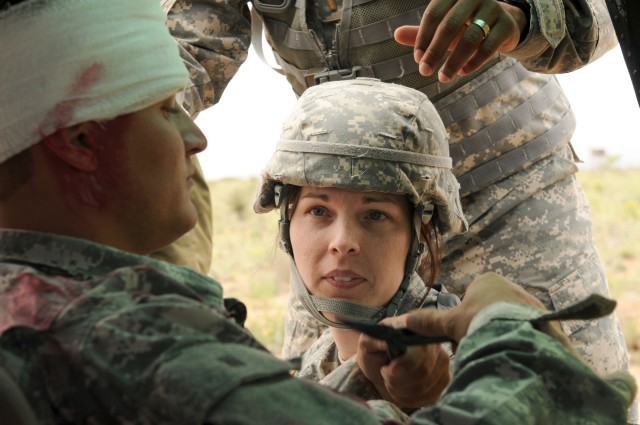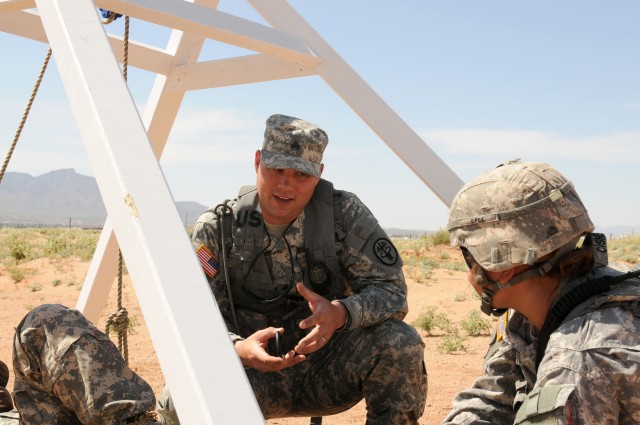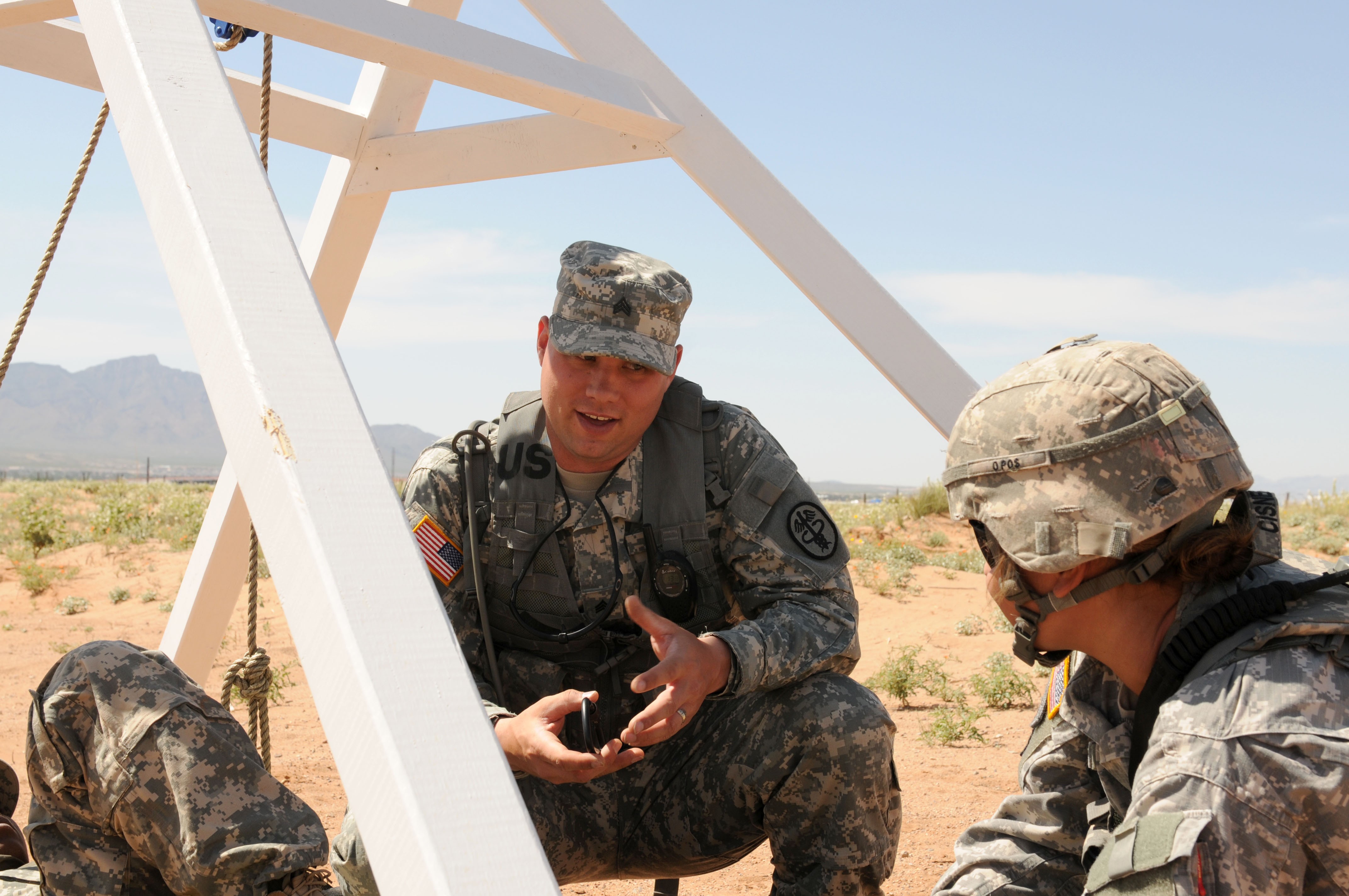FORT BLISS, Texas - Sixty-seven Soldiers, on April 27, began a process that hasn't been seen at Fort Bliss in more than 10 years.
The Soldiers are taking part in a pilot Expert Field Medical Badge Test designed to test smaller groups on a more frequent basis, and it all begins with a week of standardization.
The standardization week is for the graders and candidates to walk though everything being tested with the emphasis being on establishing one standard that all candidates will have to perform.
"The standard is the standard," said Sgt 1st Class Richard Reese, a test control officer with U.S. Army Medical Department Center and School (AMEDD) at Fort Sam Houston, Texas.
They begin with a high-speed run through as their initial introduction to the course, according to Sgt. Alan Lively, a grader assigned to B Company, William Beaumont Army Medical Center, Fort Bliss, Texas.
"After that we are breaking the guys down and showing them each task step-by-step so they can see each task slowed down. This way they know exactly what we are testing for and the criteria for each of the tasks," said Lively.
Evaluation begins after the week of standardization.
The military's high rate of deployments necessitated the need for such events as the EFMB test to better prepare medical personnel prior to deployments.
"We chose to do EFMB to improve the core competencies of our medical folks," said Command Sgt. Maj. David S. Davenport, Fort Bliss command sergeant major. "Being in a constant deployment cycle for the last eight years we have kindly moved away from some of our core competencies. EFMB much like the EIB (Expert Infantryman Badge) helps Soldiers prove they are experts in their field."
The EFMB is awarded to medical personnel who successfully complete a set of qualification tests that include: land navigation, a written test, three lanes that integrate medical and warrior skills and a 12-mile road march.
According to the AMEDD website, the EFMB was designed as a special skill award for recognition of exceptional competence and outstanding performance by field medical personnel.
"It's one of the best and most prestigious badges you can get," said Lively, a native of Corpus Christi, Texas.
Reese said even if the candidates don't earn the badge they can take these skills and build on them.
"It is within the reality of what they will see downrange," said Lively.
The Fort Bliss EFMB site is breaking new ground on how the test is conducted.
"What makes this site unique is that all of the Soldiers are organic to the testing site, and all Soldiers are allowed to go home every night," said Reese.
Even though the Soldiers are being released to go home each afternoon, they are asking to stay on the site longer to continue to preparation for the next week's testing.
"They would rather stay on the lanes and keep hands on instead of going home," said Reese. "They are all pushing hard. They all want to earn this badge."
With Soldiers deploying in and out of combat zones the Army has had fewer opportunities to conduct Expert Field Medical Badge Tests.
This has decreased the amount of medical personnel wearing the EFMB Army wide to 2 percent of officers and 0.7 percent of enlisted personnel.
The Army standard for EFMB testing had been to hold a massive event with as many as 400 candidates.
The EFMB medical tasks have to be graded by an EFMB holder and the more candidates tested, the more graders needed.
With the low number of available graders the AMEDD Center and School had to make changes to the EFMB testing.
They developed the program that Fort Bliss is using, to test 50-60 candidates at a time, which requires as few as 11 graders.
"If this works out well, this is what we'll promote," Reese said, a native of Newnan, Ga.
Not only is the Army changing the amount of candidates, they are also changing the tasks being tested to better reflect conditions while deployed.
"It's more and more looking like what they will see downrange," said Lively, who received his badge in 2003 and who is grading an EFMB test for the third time.
"After they go through this training they are a much better medic," said Davenport.
-30-




Social Sharing